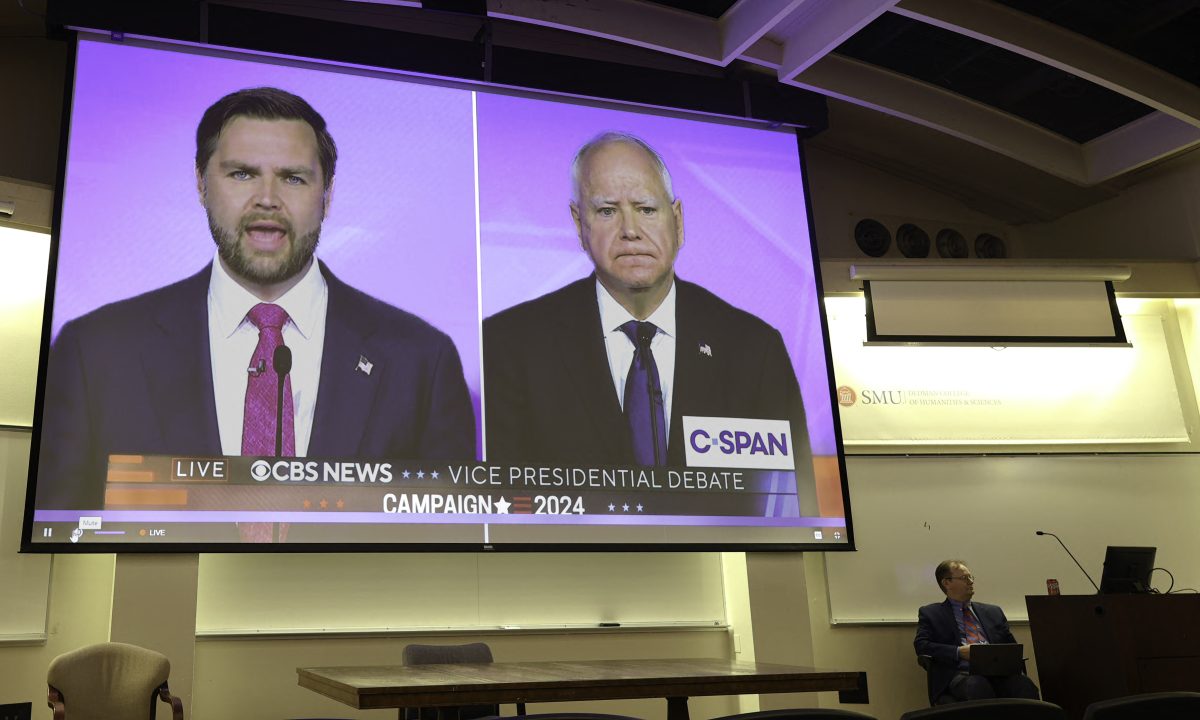The SMU Ethics Design Team posed a rather puzzling question: “Can you have sex before marriage and still be deemed a morally ‘good’ person by society?”
Russell Allsup, in his March 29 op-ed, offers no answers. Instead, he writes about how someone having sex before marriage would simply be wrong. The question is asking how society judges premarital sex, but by employing unrealistic and problematic black-and-white criteria and calling it “absolute morality,” it seems like Allsup is telling me how God judges it instead. Nonetheless, I will deal with his irrelevant answer.
So-called absolute morality, as Allsup sees it, works in the following manner: There’s only one right act, and everything else is wrong, just as stepping off of the North Pole would be traveling south, no matter where one moved. But Allsup ignores the obvious fact that there are many levels of south, and at the same time many levels of north – about 40,000 miles worth. In the same manner, there are greater and lesser evils that are at the same time greater and lesser goods. Imagine having to choose whether one person or ten people die, or giving the same thing to one of two equally deserving persons. Allsup tells us we’re damned either way, and it doesn’t matter which choice we make, but this is clearly incorrect.
Right and wrong, even according to an objective moral value standard, is more complicated than Allsup’s account. An act is not simply right or wrong; there are degrees of both. In the same manner, there are better and worse environments for sex.
To be sure, sex has particularly frightening dangers (rape, STIs, pregnancy), but their chances of occurrence can be minimized heavily. To this end, trust and compassion is vital. Therefore, one must be careful when choosing partners. A fulfilling romantic relationship, with its requisite deep trust, would be ideal. But this is as far as I go.
Marriage is not necessarily the best environment for sex because it may not be the only sufficiently fulfilling relationship in one’s life and can even tend not to be. People have different standards in relationships, especially since the “sexual revolution” of the 1960’s. It is possible and increasingly common for two people to share all the romantic aspects and feelings married couples do without the ceremony. Moreover, considering that most people get married for reasons besides “love,” such as financial security, and that the divorce rate is more than 50 percent, don’t expect people to become angels the moment they get married.
Consider Allsup’s basic argument:
“If sex is the greatest celebration of intimacy between two people, and its designs confer a fortifying factor for a relationship along with propagation, then it would make sense that its establishment is intended to reinforce the highest order of human relationship-marriage.”
If this is true, it also seems to make sense that sex before marriage also facilitates “the highest order of human relationship.” Sex, given caution, responsibility and time, can help establish a lasting bond by enhancing the companionship and intimacy of any effective romantic relationship. Moreover, it assures certainty that one has truly found a good match and thus can help pave the way for marriage. Imagine the pain of finding out too late that your perfect person just doesn’t love you in all that many ways after all: “I thought she found my jelly rolls cute!” Yet Allsup does not grant this marital-facilitative function, and refuses to grant it for no particular reason.
Moreover, such arbitrary line-drawing implicitly undervalues the process leading up to a marriage. What happens to all the requisite companionship and intimacy when I deny what is arguably their fullest expression for reasons that imply that a social construct must preside over my significant other’s questionable testimony of devotion? I might as well say, “I’ll trust you completely once Allsup says it’s alright.” Or perhaps I am caving in to theological dogma. Without reasoned discourse, this is quite foolish – and hopefully beyond the scope of this essay!
The condoning of premarital sex must not be construed as a license for licentiousness, nor should it be considered too hot without a diamond to purchase it.
About the writer:
Pat McDonald is a sophomore anthropology major. He can be reached at [email protected].








